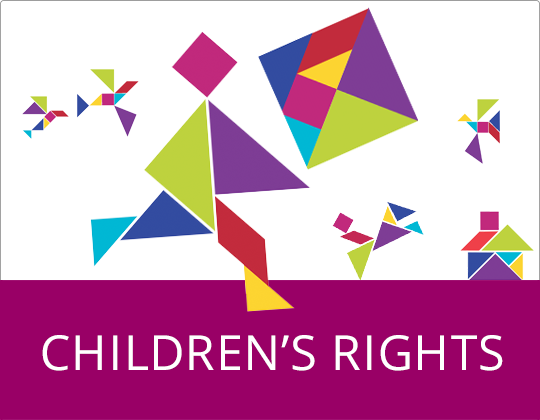Consultation Group on the Children of Ukraine (CGU)

In their Declaration on the situation of the children of Ukraine (Appendix II of the Reykjavík Declaration), the Heads of State and Government underlined “the need to intensify efforts, at all levels of governance” to ensure “the effective protection of the rights of children of Ukraine” in accordance with “the applicable Council of Europe standards”. To this end, they called on the Council of Europe “to facilitate co-operation between States, the European Union and relevant international organisations, through an appropriate mechanism”.
As a practical implementation of this Declaration, a Council of Europe Consultation Group on the Children of Ukraine (CGU) was formally launched in Strasbourg on 30 November 2023.
News
 Modalities
Modalities
The Consultation Group is unique in its kind. While its composition is similar to that of inter-governmental bodies, it works as an international co-operation project funded under the Council of Europe Action Plan for Ukraine (2023-2026). It can be considered sui generis in nature. This distinctive set-up reflects the Council of Europe’s wish to respond to exceptional circumstances with a flexible and operational mechanism that has the potential to result in tangible and immediately ready to use deliverables for the member States and all actors in the field.
The CGU carries its mandate through two different platforms for dialogue: the plenary meetings and the meetings of three Thematic Dialogue Groups on Transnational Procedures and Cooperations, Guardianship, and Psychological support and trauma-informed care. In addition, the CGU holds special revolving thematic sessions (in the form of thematic exchanges or hearings) at its plenary meetings on pressing issues of priority concern to member States.
The Chatham House rule applies to all CGU meetings.
 Mandate
Mandate
The main objective of the CGU is to act as an operational co-operation platform to facilitate dialogue and the exchange of information, in a multilateral setting, on policies regarding Ukrainian children residing in Council of Europe member States. In particular, the objective is to:
- help identify gaps in the existing applicable laws and standards;
- harness existing tools available to help implement these laws and standards;
- find pragmatic ways and solutions to address some of the key challenges faced by States having received children of Ukraine and to support the Ukrainian authorities in addressing some of their major concerns in order to ensure the protection of Ukrainian children;
- promote transnational co-operation on these issues between States;
- where possible, build on promising practices among States.
Rather than dealing with individual cases, the CGU’s focus will be on developing a common understanding of some of the most important legal and policy issues facing member States as a result of the arrival of Ukrainian children on their territories. However, the aim of the Group is not to create new standards, but rather to build and draw on existing ones, and to fill gaps and to seek to harmonise their implementation across member States. To this end, Council of Europe standards, such as the jurisprudence of the European Court of Human Rights, as well as the findings of Council of Europe monitoring and guidance by Steering committees will provide a strong blueprint for the work of the CGU.
Categories of children falling into the remit of the CGU’s mandate are unaccompanied or separated children arriving in Council of Europe member States from Ukraine, as well as children evacuated from alternative care facilities in Ukraine accompanied by adults, or children accompanied by a parent or primary caregiver. Children having been unlawfully transferred and deported to the Russian Federation or to the areas temporarily controlled or occupied by the Russian Federation are not covered by the mandate of the Consultation Group.
The mandate of the CGU is 24 months (1 August 2023 – 31 July 2025).
The work of the CGU will be carried out exclusively in English.
 Composition
Composition
To date, 41 Council of Europe member states have appointed national experts responsible for decision making and co-ordination of issues related to children of Ukraine, mainly from Ministries of Social Affairs, but also from Ministries of Justice or Interior.
Other strategic partners, including the European Commission, the EU Asylum Agency (EUAA), the EU Fundamental Rights Agency (FRA), UNHCR, UNICEF ECARO, the Hague Conference on Private International Law (HCCH), and some key civil society organisations, have also nominated focal points, both Ukrainian and European umbrella organisations.
 Meetings
Meetings
Plenary meetings and thematic exchanges
2nd meeting, 25 - 26 March 2024 (online)
1st meeting, 30 November - 1 December 2023 (Strasbourg and online)
Zero meeting, 4 October 2023 (online)
 Background documents
Background documents
- Bibliography, CGU Secretariat
 Transversal approach
Transversal approach
Council of Europe Strategy for the Rights of the Child (2022-2027)
Council of Europe Action Plan for Ukraine “Resilience, Recovery and Reconstruction” 2023-2026
Council of Europe Convention on Action against Trafficking in Human Beings by the Parties



